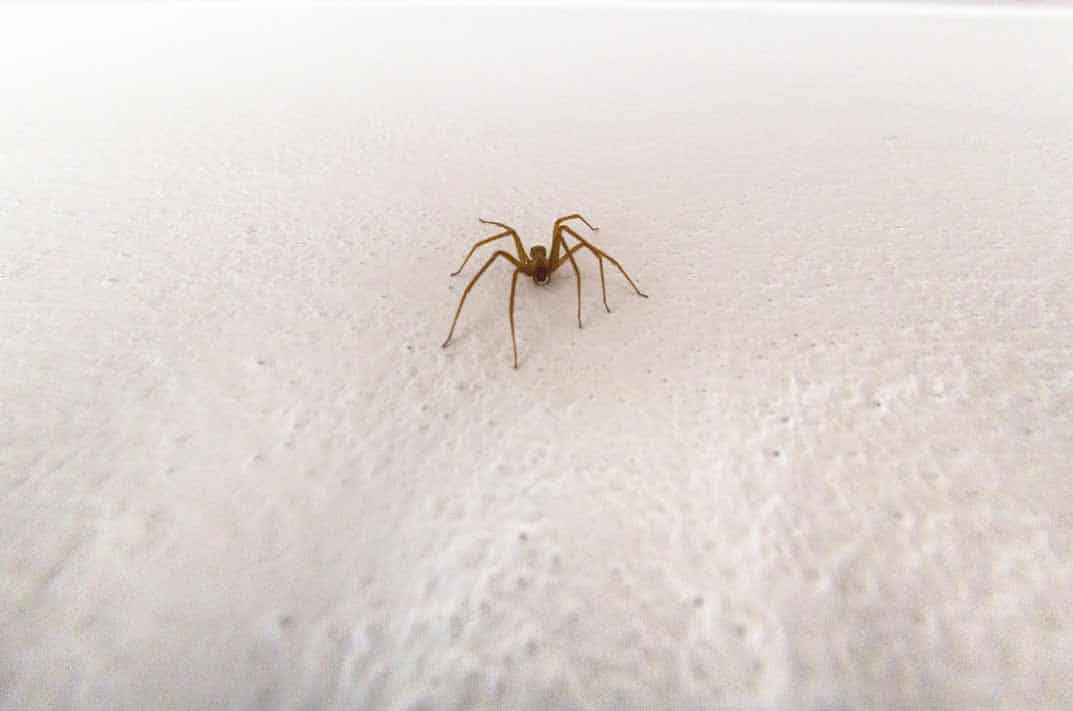Most homeowners associate a single rogue spider on the ceiling with a simple annoyance, but what happens when those eight-legged visitors seem to multiply overnight? At Wake Pest, we often get questions about why full-blown spider infestations occur and what you can do to prevent them. Let’s explore the key factors that lead to a spider boom and offer actionable strategies to keep your home’s spider population in check.
It’s worth noting that a handful of spiders doesn’t necessarily mean you’re on the brink of an infestation. Spiders are common, and most species you see are simply passing through or looking for an easy meal. However, when the numbers climb high enough to be alarming, it’s helpful to understand the underlying causes.
1. Plenty of Insect Prey
Spiders are predators, and they follow their food source—other insects. If your home has a variety of pests (like flies, mosquitoes, moths, or roaches), you’re inadvertently rolling out the red carpet for spiders.
According to the National Pest Management Association, a single spider can consume dozens of insects in just a few days. So, if there’s a steady buffet of bugs in your home, spiders will flock there to take advantage.
How to Stop It:
- Eliminate Insects: Keep your home free from food debris, seal trash cans, and use screens to keep flying insects out.
- Install Outdoor Lighting Strategically: Switch to yellow “bug” bulbs or motion-sensitive lights to reduce insects gathering near your entrances.
2. Easy Access Points
Spiders typically don’t travel far from where they hatch. Once they find a safe, enclosed spot, they can lay eggs and grow their numbers quickly. If your home has unsealed cracks and gaps in doors, windows, or the foundation, spiders have an easy way in.
How to Stop It:
- Seal Cracks: Use caulk or weather stripping to fill gaps around windows and doors.
- Check Entry Points: Inspect areas where utility lines or cables enter your home—these are common spider highways.
3. Dark, Cluttered Spaces
Ever gone into your garage or basement and felt like you were stepping into spider central? Spiders love dark, undisturbed areas—the kind clutter creates. Stacks of boxes or piles of old clothing offer cozy, hidden spots where spiders can hide, build webs, and reproduce without interruption.
How to Stop It:
- Declutter Regularly: Keep items off the floor and stored in sealed plastic bins, if possible.
- Frequent Cleaning: Vacuum or sweep these areas often, removing webs and potential egg sacs.
4. Favorable Climate and Humidity
Raleigh’s relatively mild winters and humid summers create a comfortable environment for spiders. Dampness in basements, crawl spaces, or bathrooms also attracts insects and, by extension, spiders. A damp environment can speed up insect breeding cycles, boosting the spider’s food supply.
How to Stop It:
- Use Dehumidifiers: Keep moisture levels below 50% in basements or other damp areas.
- Fix Leaks Promptly: A leaky pipe can become a breeding ground for pests if left unchecked.
5. Seasonal Spider “Booms”
Depending on the species, spiders can have seasonal population spikes, especially in the late summer and early fall. That’s when many of them reach maturity and begin mating. You may notice an influx of web-building or wandering spiders seeking mates or nesting spots.
How to Stop It:
- Year-Round Maintenance: Even if you see fewer spiders in winter or spring, keep up with preventive steps to avoid a big spike later.
- Outdoor Checks: Monitor the exterior of your home during peak spider seasons, removing webs from windowsills, porch lights, and eaves.
Recognizing Signs of a Real Infestation
Not every spider sighting indicates a major problem, so how do you know when it’s a genuine infestation? Look for:
- Frequent Webs: If you remove a web one day, and it’s back (or multiplied) within a day or two, it suggests a larger spider presence.
- Egg Sacs: Spiders produce egg sacs that can hold dozens—or even hundreds—of spiderlings. If you’re seeing multiple sacs, it’s time to act.
- Venomous Species: If you’re repeatedly finding black widows or brown recluses, it’s more than just a “casual visit.”
- Spider Sightings in Multiple Areas: If they’re showing up in different parts of the house, it’s not a localized issue anymore.
DIY Strategies to Combat Infestations
If you think you’re on the verge of or already dealing with a spider infestation, here are a few steps you can take before calling the pros:
- Deep Clean: Vacuum and dust thoroughly, paying extra attention to corners, behind furniture, and under appliances.
- Remove Clutter: Organize basements, attics, and garages. The less clutter, the fewer hiding spots.
- Seal and Repair: Patch holes in screens, seal cracks, and check weather stripping.
- Use Natural Repellents: Consider essential oil sprays or sticky traps for early-stage infestations.
These steps can drastically reduce the number of spiders and help break their breeding cycle.
When to Call Wake Pest
Sometimes, despite your best efforts, spiders persist. That’s when we come in. Here are some clear indicators it’s time to reach out:
- Recurrent Infestations: If you knock down webs, clean up, and still see a spike in spider activity, it could mean they’re nesting in hidden areas.
- Venomous Species Present: Don’t risk handling black widows or brown recluses without professional assistance.
- Safety and Peace of Mind: If the mere thought of so many spiders makes your skin crawl, call us. Living in fear in your own home isn’t something we want you to endure.
At Wake Pest, we don’t just treat the problem; we find the root cause. We’ll do a thorough inspection to identify entry points, locate nesting areas, and evaluate the conditions (like high humidity or abundant insect populations) that invite spiders in. From there, we tailor a solution—often blending conventional and eco-friendly methods—to meet your home’s unique needs.
Long-Term Prevention
Once you’ve tackled the immediate issue, the next step is prevention. We recommend a combination of regular home maintenance, ongoing inspections, and occasional follow-up treatments if needed. We’ll also offer practical tips—like storing firewood away from the house or installing new weather stripping—to minimize the chance of a future infestation.
Final Thoughts
Spider infestations don’t happen overnight, and they’re rarely caused by just one factor. Understanding why they occur—from abundant food sources to readily available hiding spots—helps you take meaningful, long-lasting action. Whether you go the DIY route or prefer the expertise of professionals like us, the key is to address all the underlying issues that make your home attractive to spiders.
At Wake Pest, we’re dedicated to helping Raleigh homeowners get to the bottom of their pest problems. If spiders have overstayed their welcome in your home, give us a call. We’ll work together to create a personalized plan that puts you back in control of your living space—free from unwelcome eight-legged guests.

